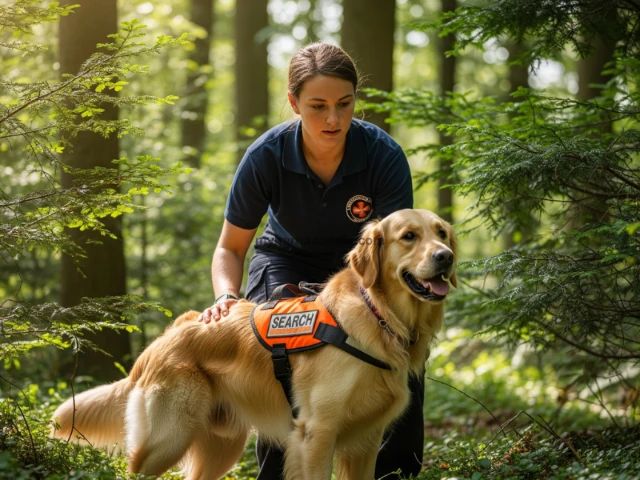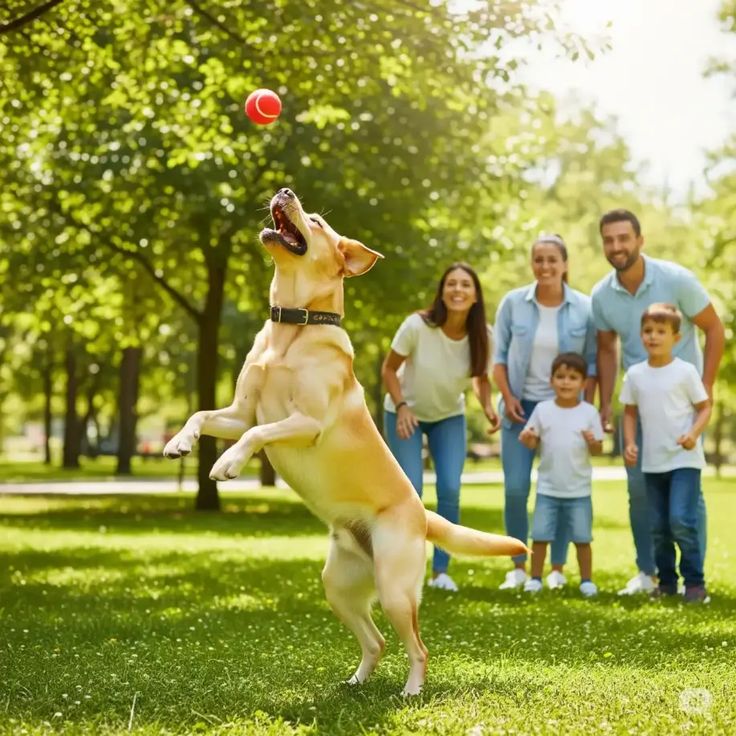You have, no doubt, seen a puppy sporting in the grass, and you have known what a warmer and what a cheerier little fur ball may be. And behind each wagging tail and amiable yell there is a chance to develop and to learn. It is not simply a matter of training dogs that becomes a puppy educator, it is about moulding destinies, canine and human.
Wonder what we could do with that unending energy; what we could impart to it to instill in the puppies the skills that would be of benefit later on, to inculcate in them good morals, and to make them and their owners more attached to each other. It is the one that appeals to fulfillment, does it? Nonetheless, before getting into this rewarding career path there are a few important points to be taken into consideration. Since you know about your position to the qualifications you need to be successful, we will find out what awaits those who desire to take this adventurous step to becoming a puppy instructor.
The Role of a Puppy Educator
A dog trainer plays a crucial role in the upbringing of a puppy, especially when it comes to preparing volunteer guide dogs. Training is not just about teaching commands—it is a comprehensive process that develops social skills, confidence, and adaptability.
Teachers expose puppies to different surroundings, which make them accustomed to different sounds, sights, and smells. All the experiences form the foundation of their future behavior as adults dogs.
Along with simple orders such as sit or stay, teachers tend to pay attention to the methods of positive reinforcement. The method develops trust between pup and owner as well as strengthening positive habits.
Another important element of this position is understanding the body language of a dog. A good teacher knows how to read the signs of a puppy and each communication makes one feel safe and comfortable.
These experts help puppies and their owners experience the thrilling and even difficult process of development together.

Skills and Qualifications Needed
In order to be a good puppy trainer, there are specific specifications and capabilities required. To start with, one has to know the behavior of dogs well. Specific signals of communication are peculiar to puppies, and the ability to interpret those signs can be the key.
Practice in training methods is also significant. The knowledge of positive reinforcement techniques will enable you to instruct the puppies and their owners successfully. This method creates trust and helps to learn in an entertaining atmosphere.
Excellent communication skills must not be ignored. You would have to pass instructions to pet owners in a clear manner and create an interesting environment with the puppies.
Patience is key. It is difficult to train small pups; they do not necessarily understand the things immediately. The composed nature will help you to take them through the difficult moments without frustrating or causing stress to the people involved.
Understanding the Responsibility
It is not an easy task to become a puppy educator. You are not only teaching dog commands, you are molding the character and nature of young dogs. Every encounter forms the basis of their future.
It is imperative to know the psychology of dogs. The impression made on the puppies can affect their social abilities and their level of confidence. This will equip them with success in different environments, as a positive experience will be experienced during their training sessions.
It is not just obedience on your part. You also instruct new owners of pets in how to foster a good relationship with their furry companions. This involves the treatment of behavioral problems that accrue in future.
Moreover, you need to know the latest trends in dog training and animal care. This information will see to it that the puppies as well as their human companions live happily as they go through the journey of life together.
Training and Certification Programs
Potential educators of puppies need training and certification programs. These are organized classes that offer good background in dog behavior, communication and training methods.
There are numerous organizations that provide certifications that suit various methods. Others would tend to concentrate on positive reinforcement techniques whereas others may concentrate on different behavioral theories. Exploring such alternatives may assist in locating the most suitable one to fit your philosophy.
Practical experience is also critical. Seek programs which will involve hands on experience with actual puppies. Such exposure would assist you in developing your confidence and ability to deal with different situations.
In addition to the conventional classroom learning, online education has become popular also. They are flexible and address the necessary issues such as socialization, obedience schooling, and health care awareness.
These programs are also usually accompanied by networking opportunities. Encountering colleagues can result in precious experiences and partnership in the future – it is crucial to continue learning out of the classroom environment in this constantly-changing profession.
Challenges Faced by Puppy Educators
As a puppy instructor, there are special challenges associated with it. Among the greatest obstacles, one must overcome is the issue of various temperaments and personalities in puppies. Every dog is also different and therefore, what is effective on one dog may not be effective on another. This entails patience, innovation and flexibility.
Also, it is difficult to communicate with puppy owners. Teachers frequently have to fill in the gap when they know about training and what pet owners believe should be done. Lack of proper communication may result in frustration by both parties and therefore it is necessary to build trust and clarity at the beginning.
The other issue is to maintain the abreast with training approaches. The discipline is ever changing with new studies coming out regarding the behavior and learning of dogs. Seminars or workshops are necessary to keep up with the changing environment.
Time management is also an important aspect of the life of an educator. Taking various classes at once and at the same time attending to all the puppies as they require can prove difficult at times.
Having emotional strength is essential when it comes to disappointments. Not all puppies will be successful under your care immediately, some might not come into hand as quickly as you have anticipated them to learn to do the simple commands or even social skills.
Notwithstanding these hurdles, some of them derive great pleasure in seeing puppies mature to become good adult dogs who can give fulfillment to their families. It is a satisfying process with its ups and downs and eventually leads to immense bonds of both teachers and their pets and also in the families they serve throughout the process.
















